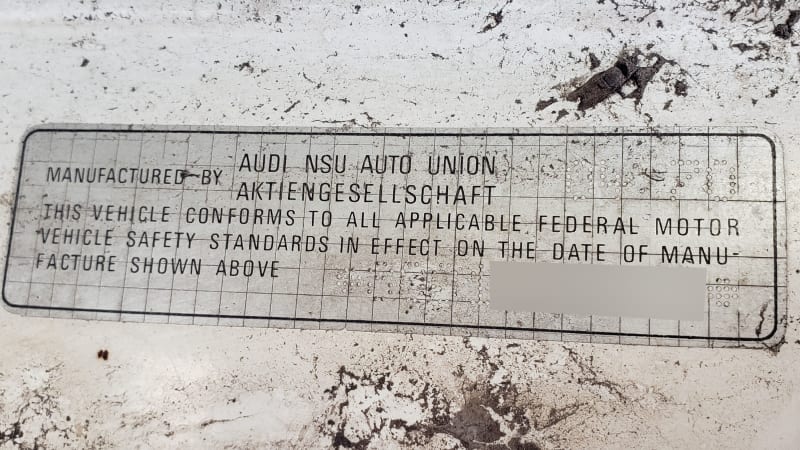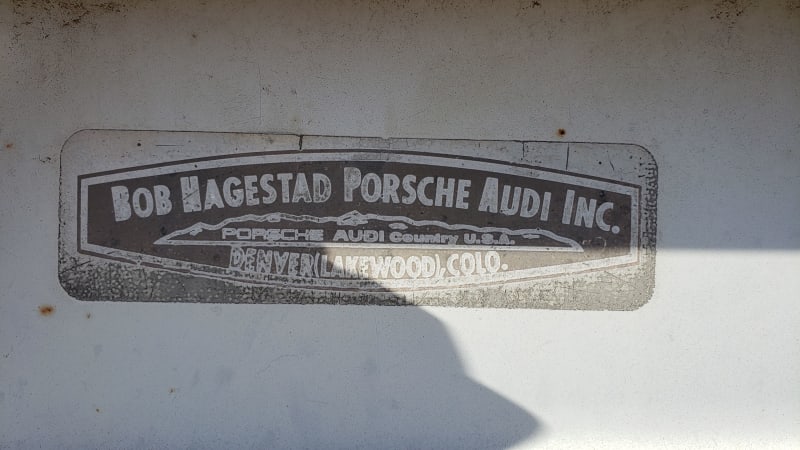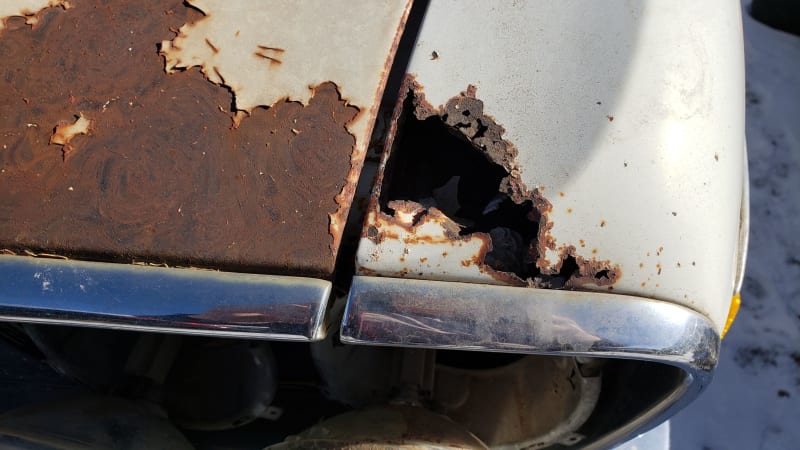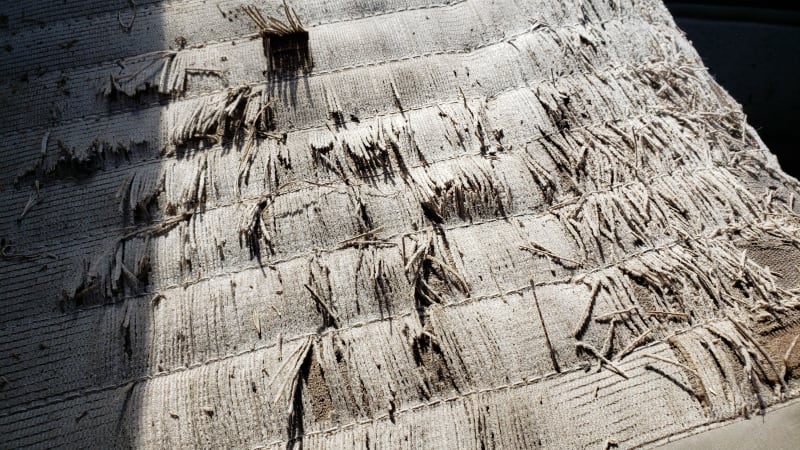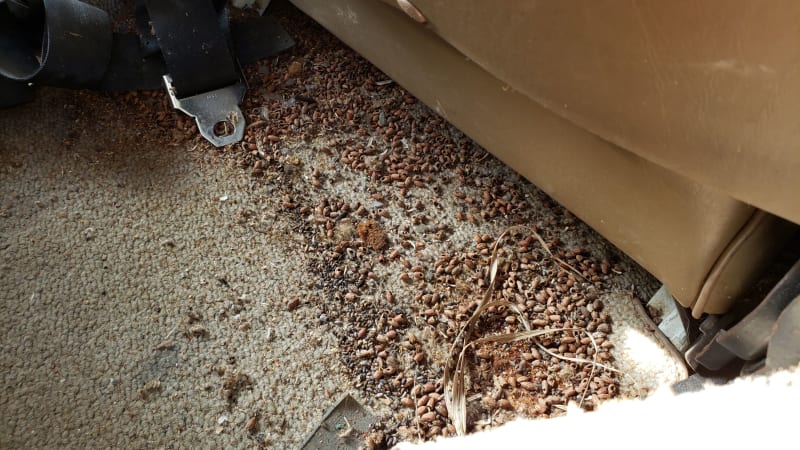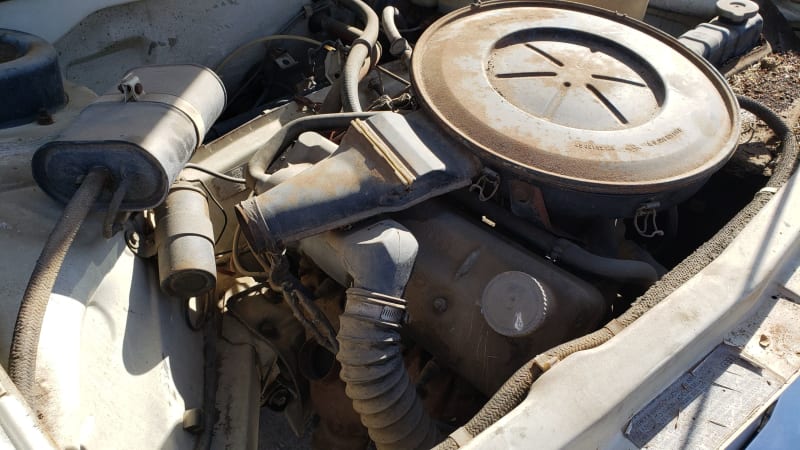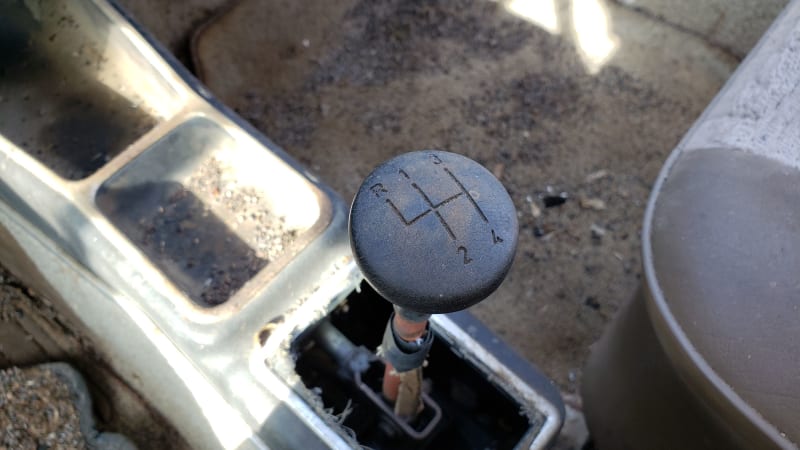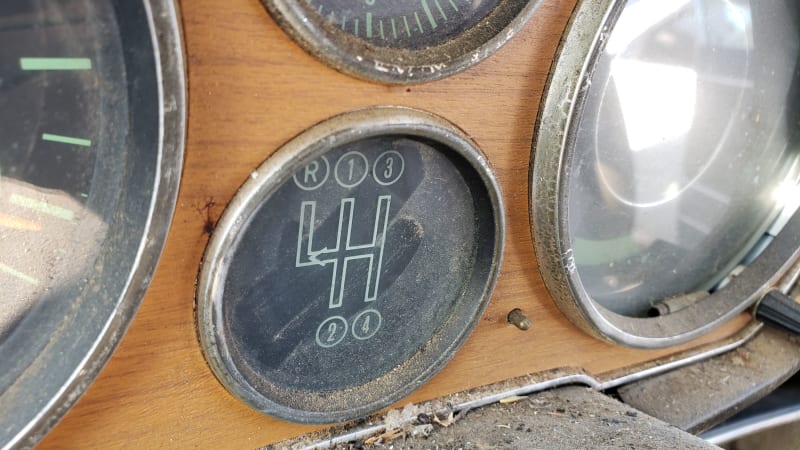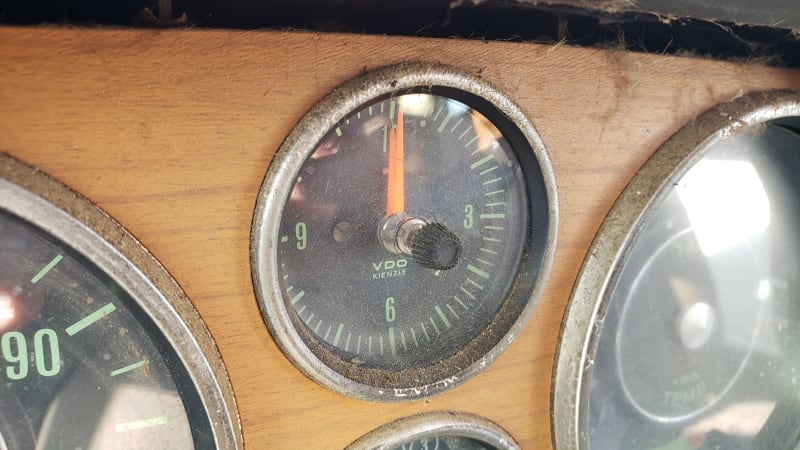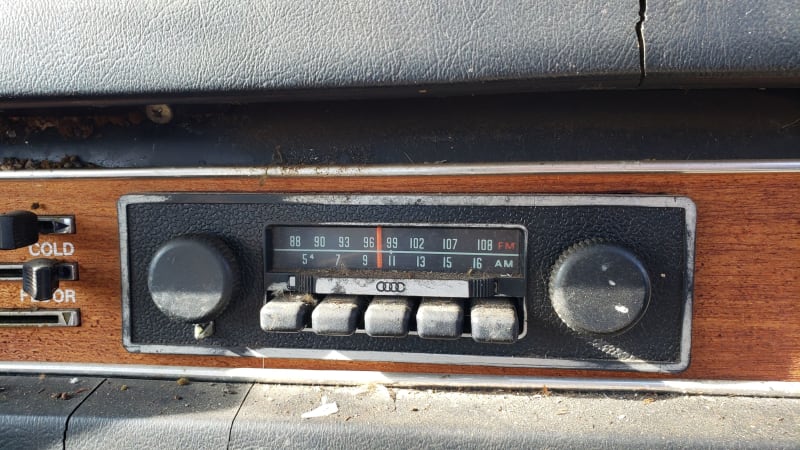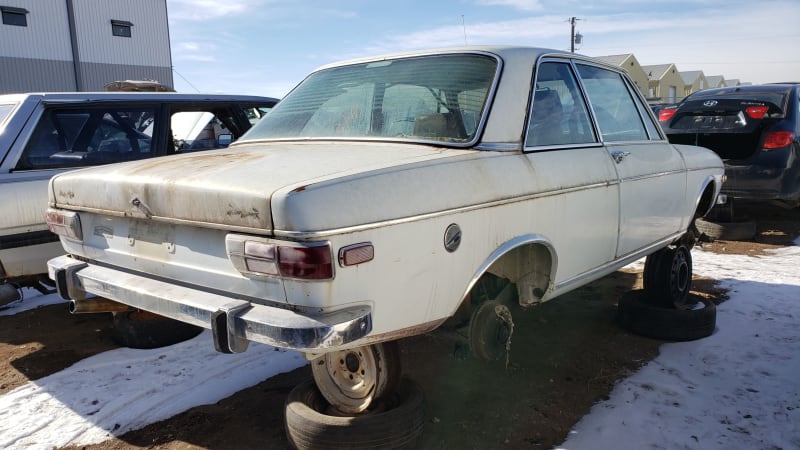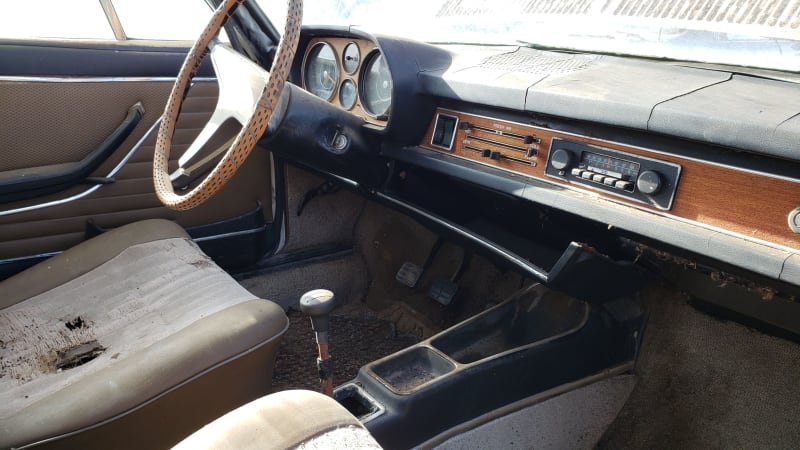While Americans could buy new cars made by Audi ancestors DKW and NSU during the 1950s and 1960s (few did so), the Audi story as we know it here really began in 1969, when the 1970 100LS went on sale in the United States. The 100LS remained on sale through 1976 and gained a small-but-devoted American following, and I try my best to find discarded examples during my junkyard travels. This has been a difficult task, with just a lone ’76 sedan appearing before my camera during the past decade or so. Last week, though, I found this extremely rare first-model-year 100LS in a yard northeast of Denver.
Note that the company name was “Audi NSU Auto Union” at the time of this car’s manufacture; that’s what Volkswagen’s bosses named it after the 1969 acquisition of NSU, and the name stuck until the company became just Audi AG in the 1980s. Date of manufacture was April of 1970, around the time when the Baader-Meinhoff Group was stirring up trouble in West Germany.
Bob Hagestad ran a Porsche/Audi dealership on Colfax Avenue in Denver, became well-known as a Colorado 924 racer, and went on to sell Volkswagens in Texas.
This car appears to have been well-cared-for during its first couple of decades, at which point it ended up spending many years sitting outdoors in the harsh High Plains climate. Much of the paint has been burned off its upper surfaces and there’s rust-through from many years of winter snow buildup.
The once-luxurious interior has been irradiated into a dust-billowing crispiness.
As so often happens with cars stored outdoors for long periods here, rodents made their nests in the passenger and engine compartments. You need to be careful with mouse-poop-filled cars like this in Colorado boneyards, because hantavirus is a genuinely lethal danger here. I’ve seen worse rodent-poop cars than this, though — much worse.
The 1.8-liter engine all the way at the front of the engine compartment made 115 horsepower when new, which was pretty good power for 1970.
The four-on-the-floor manual was still state-of-the-art in 1970, with most Detroit three-pedal cars still running three-on-the-trees. The final new four-speed manual car available in the United States hit the showrooms when this Audi was a quarter-century old, so this type of transmission remained relevant for quite a while. The 100LS got an optional automatic transmission starting in 1971, and it cost $200 extra (about $1,310 in 2021 dollars).
The shift diagram built into a standard VDO gauge housing is a nice touch.
These VDO/Kienzle clocks went into millions of European cars over the decades.
This Emden AM/FM radio was an $85 option. That’s about $555 in present-day bucks, but absolutely necessary if you wanted to listen to the hits of 1970 with the required fidelity.
So how much was the entire car? MSRP on the two-door 100LS sedan came to $3,695, or about $25,450 in 2021 dollars. Meanwhile, the bigger and flashier 1970 Buick Gran Sport hardtop coupe cost just $3,283, and that included a 455-cubic-inch (7.5-liter) V8 rated at 350 horsepower. An American car shopper had to be something of a devoted Europhile to choose a new Audi in 1970 (in that case, though, the $2,982 BMW 2002 would have been tough to resist).
I hope some Colorado 100LS restorers extract some usable parts off this car before it faces the cold steel jaws of the crusher!
Like having a Rolls-Royce Silver Shadow, Mercedes-Benz 280SE, and a Cadillac Eldorado all at the same time!


